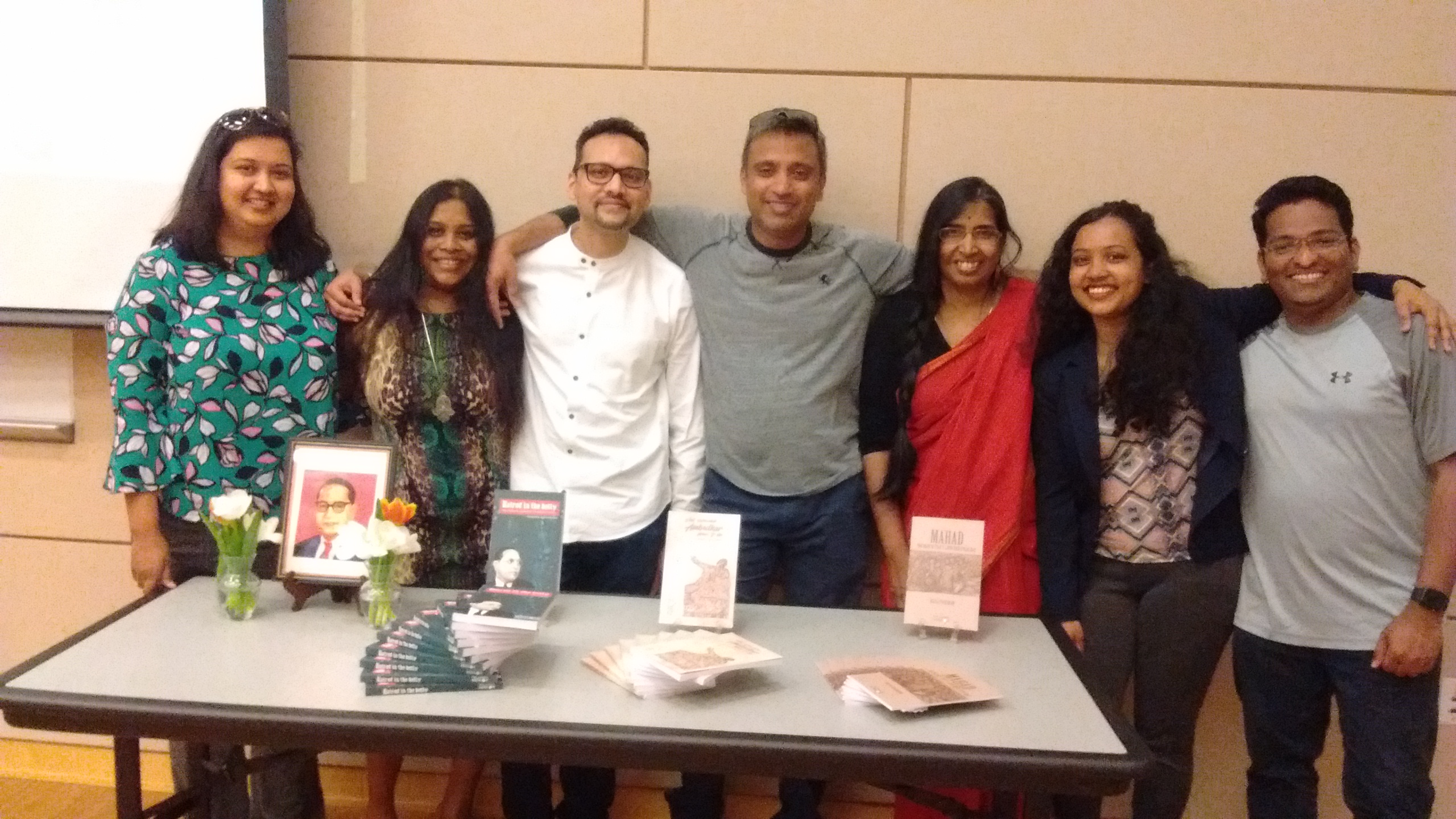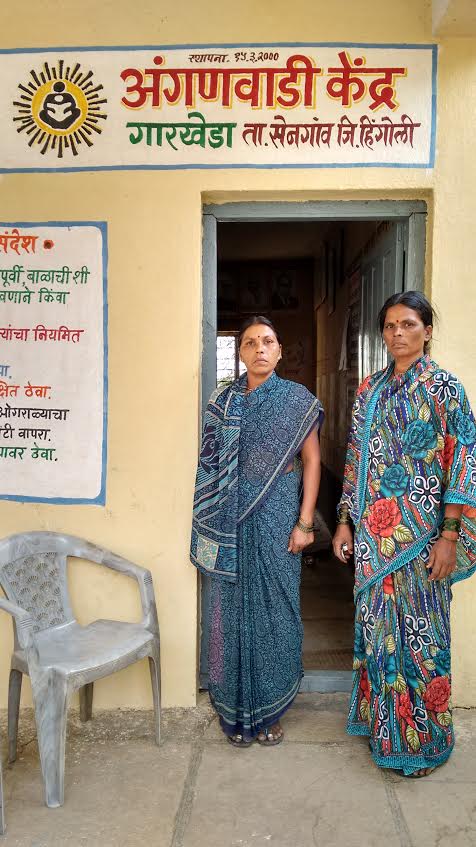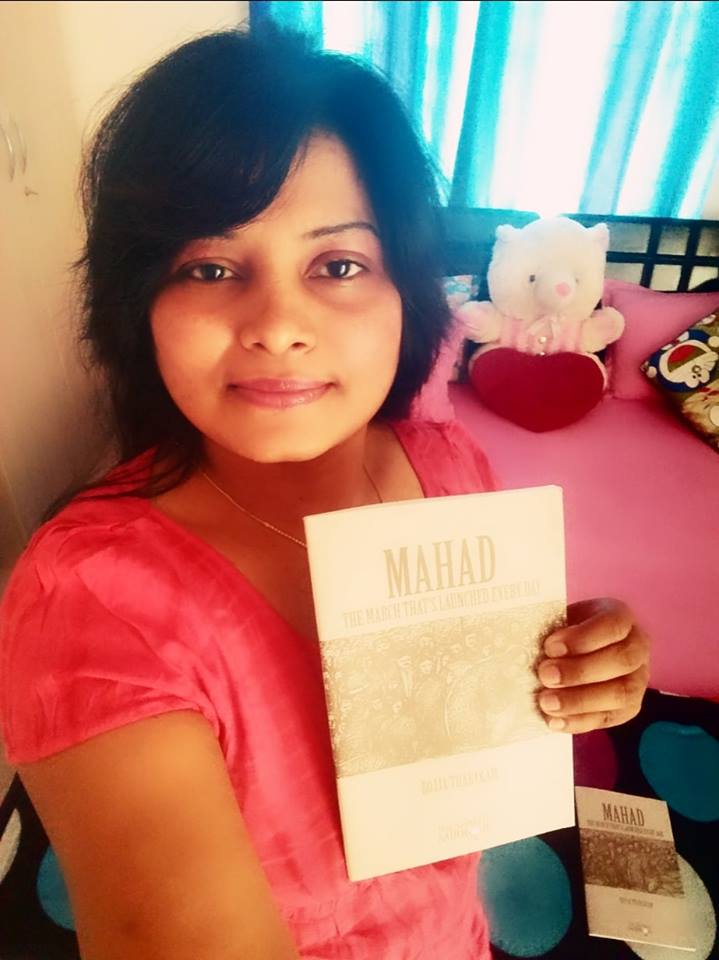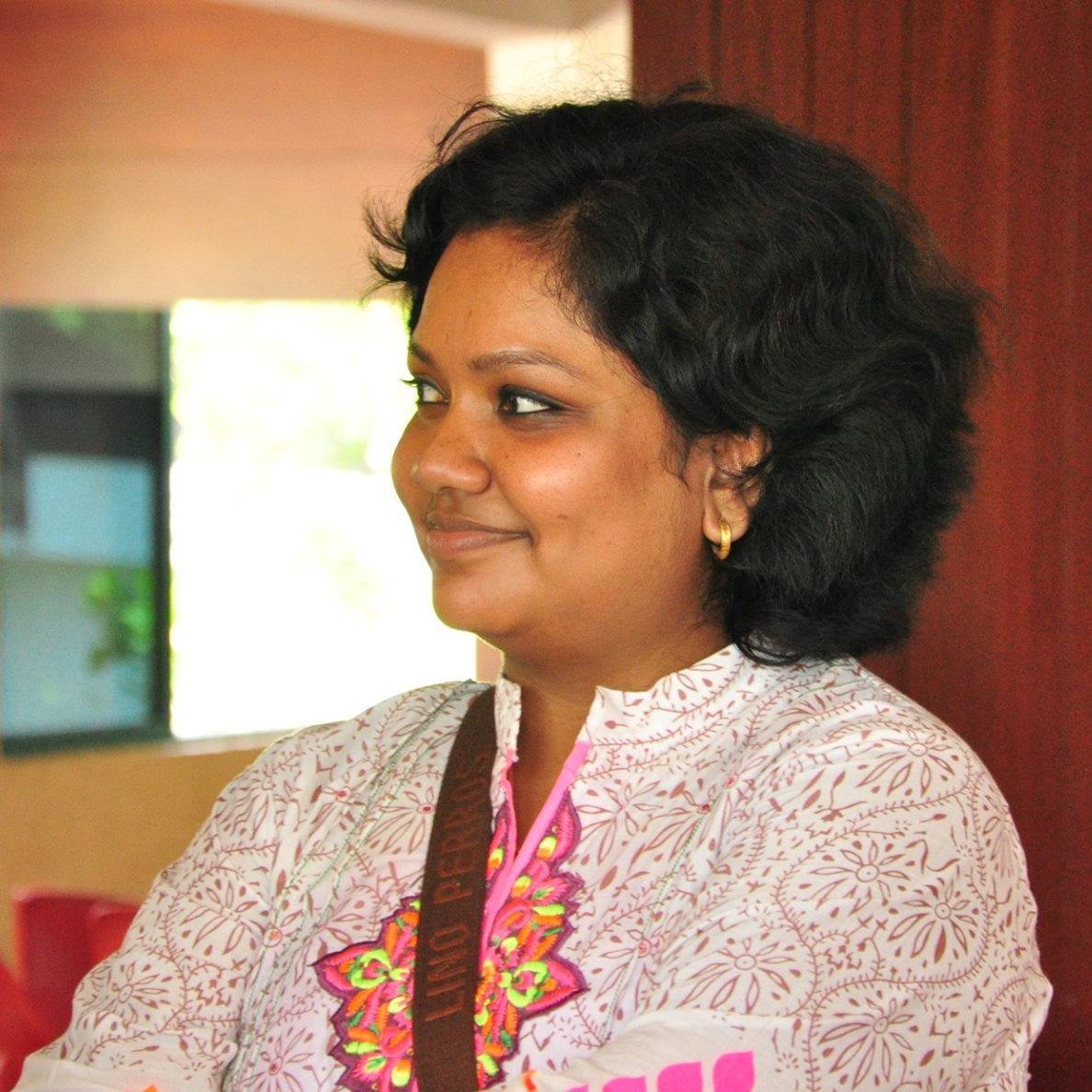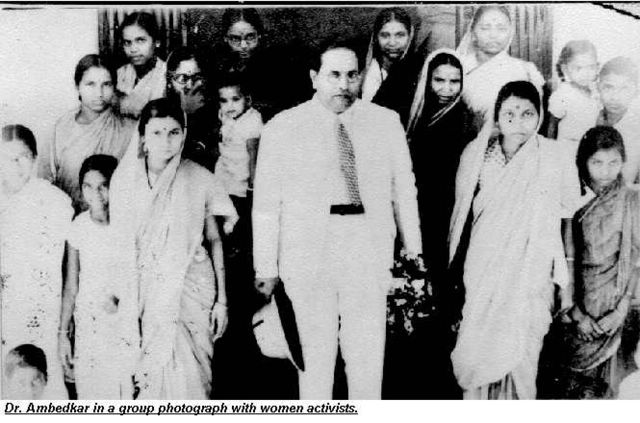The 128th birth anniversary of Babasaheb Ambedkar and 10 years of Round Table India was the perfect occasion for friends to meet and celebrate with books and conversations. Phule-Ambedkar Center for Anti-Caste Thought hosted this meeting on April 20th, at Gaithersburg City Library, Greater Washington Area.
Local friends and old friends from several states flew in, came by train, drove in or joined via video conference. We all gathered around an improvised roundtable to talk. The following is a short report containing excerpts from presentations and discussions.

Pradnya welcomed the attendees to the event, noting how we were continuing the legacy of Ambedkar and Phule in knowledge production, and celebrating 10 years of Round Table India, the release of the first three titles by The Shared Mirror publishing house, and the release of Volume 3 of Prabuddha Journal. Naren Bedide (Kuffir) addressed the gathering via video conference, followed by talks and presentations.

Pranathi: ~ I could talk a little bit about my research … I go to school in Howard County … I have been looking at news articles … mostly on caste-based hate crimes… many brahmins and citizens in India believe that one of the root causes was the affirmative action policies or caste quotas… that it negatively affects them and the rest of the population because it results in decreased effectiveness in the workplace… in my research, I discovered that these policies are actually benefiting those who are in need of education drastically … these little steps in increasing the basic rights that they have, is needed in India. The argument that affirmative action policies are disadvantaging everyone is truly false. ~
 Pradnya: ‘Caste and Environment from a Bahujan Perspective’
Pradnya: ‘Caste and Environment from a Bahujan Perspective’
~ I will broadly contextualize the environment justice movement in India … Phule… ties the questions of resource management, farmers’ misery, exploitation of labour, landlord dominance, as central to the caste structural oppression. After independence, discourse mostly dominated by brahmin-savarnas, invoking Gandhi’s thoughts about village economy and spirituality, which has such undertones of caste supremacy… then global North versus global South, no real discussion about caste, and Bahujans getting impacted because their livelihoods and living conditions depend on it… then neoliberal governance… then we see Hindu nationalists… clean Ganga, purity reinforced … then urban, bourgeois environmentalism … Bahujan struggles have been about resources, water, and land… we have to begin articulating in the mainstream public discourse. ~
 Anu: ‘10 years of Round Table India: What I learn everyday’
Anu: ‘10 years of Round Table India: What I learn everyday’
~ Round Table India is one website. It is one data point in millions of ongoing efforts by nameless people, and thousands of organizations working to annihilate caste… Content-wise, it is one of the major repositories of contemporary writings in the subcontinent. It is not funded by anyone other than a few individuals, for the most part by founding members, and the costs are only towards domain charges and for few security features. There are no salaries, no infrastructure, no overhead. We value autonomy over everything else, as a result, we have something so uniquely Bahujan, so uniquely beautiful. RTI is collectively owned and everyone takes ownership.… Who are the writers? They represent communities from across the Bahujan working class… we work with a very large group of voluntary editors, translators, transcribers, fact-checkers. RTI has no reference model, I cannot think of another comparable attempt in other parts of the world with histories where significant sections of the societies who have been disallowed from writing and expressing. It is also a model that is not very easy to be co-opted as it defies predictability, no one, including the RTI’s editors can predict what kind of submission or topic will come in, which new writer will make their appearance.[…]
I’d like to finish with saying, Babasaheb has charged us with this noble task, annihilation of caste. Nothing is more sacred, nothing is a bigger purpose than to work for a world that ensures human equality. Jai Bhim. ~
 Noel: ‘Bahujan Assertions & Black Self Determination as a learning community’
Noel: ‘Bahujan Assertions & Black Self Determination as a learning community’
~ … As bahujans, our legacy of scholarship must be a continuation of the trajectory set by Baba Saheb, Phule and others who educate, organize and agitate bahujans towards annihilation of caste and social equality through their writings, actions, assertions and commitments. And therefore, through our collective enterprises such as RTI, Savari, Shared Mirror and Prabuddha, our literary production is an emergent response that determines truths to constantly resist and dismantle structures of oppression. These formations are our institutions through which we dignify, respect, learn and build as bahujans. To us, this is a loving responsibility… ~
Organized by the Phule-Ambedkar Center for Anti-Caste Thought
On April 20 2019. At Main City Library, Gaithersburg, Maryland USA Video
Photos and video recording of the event by Madhurima Tikkisetty




The full transcripts of the talks and the videos will be uploaded in the next few days.
